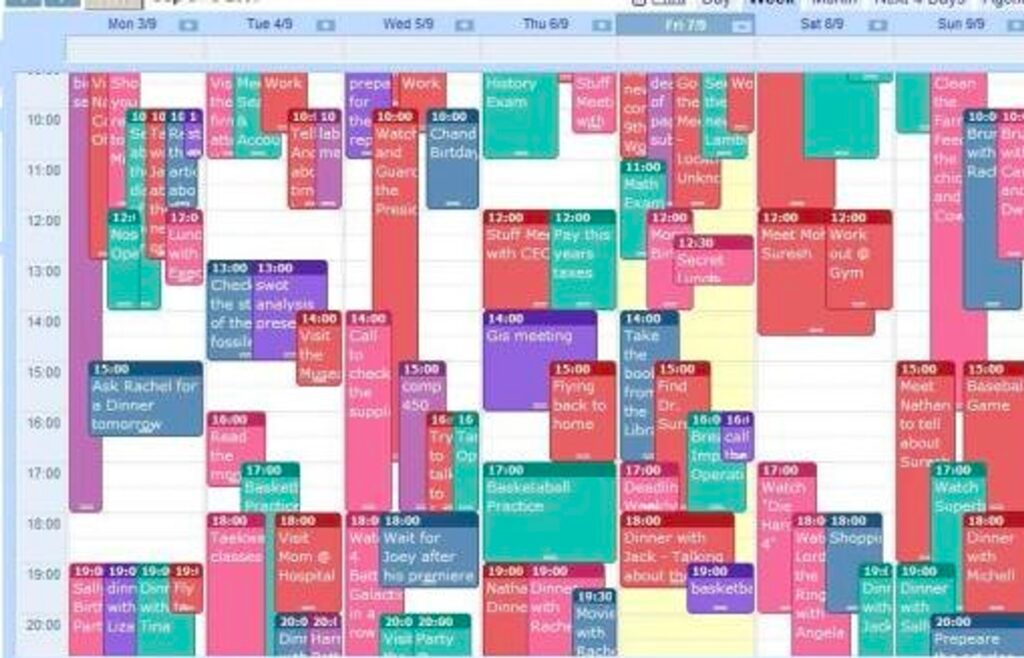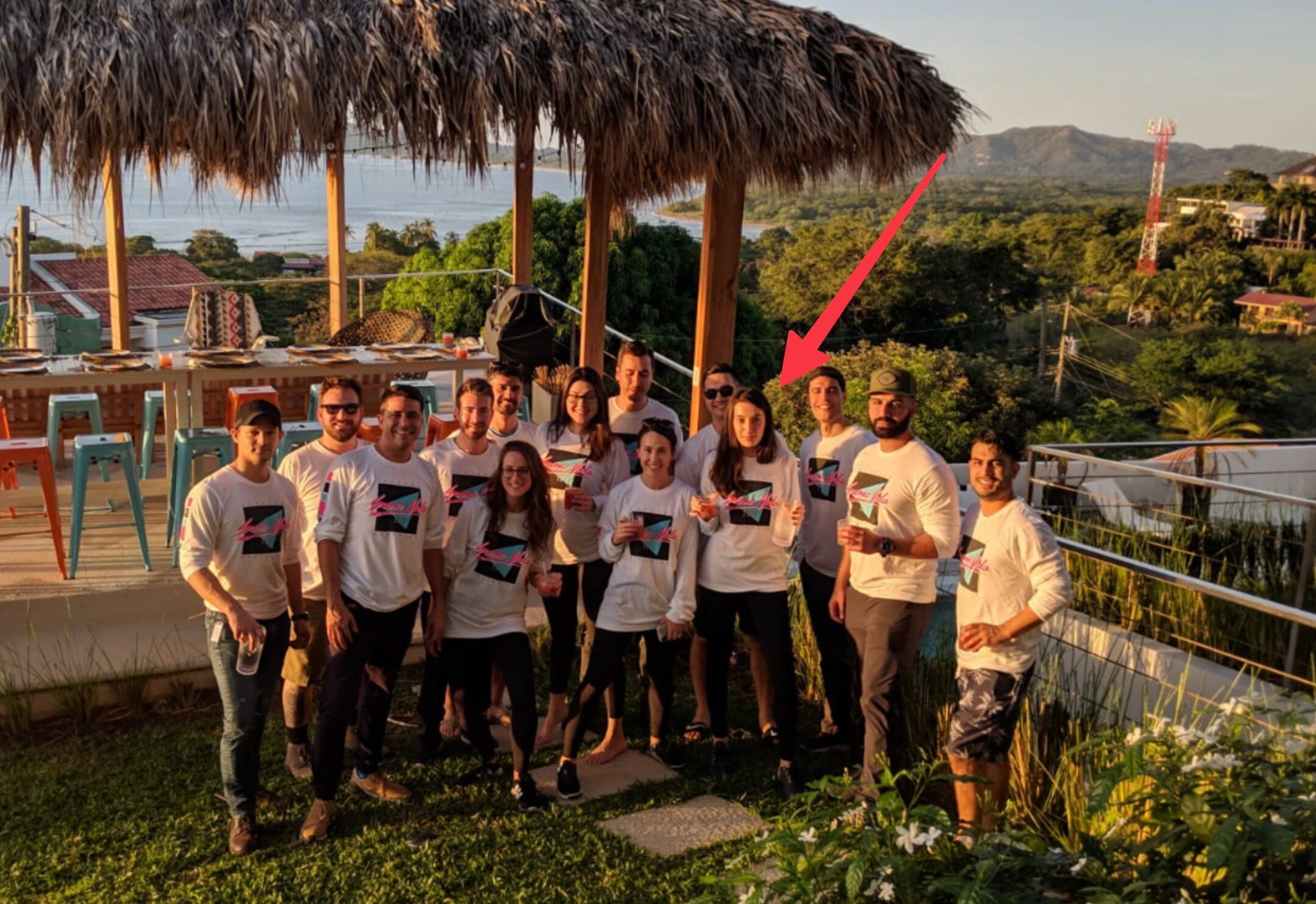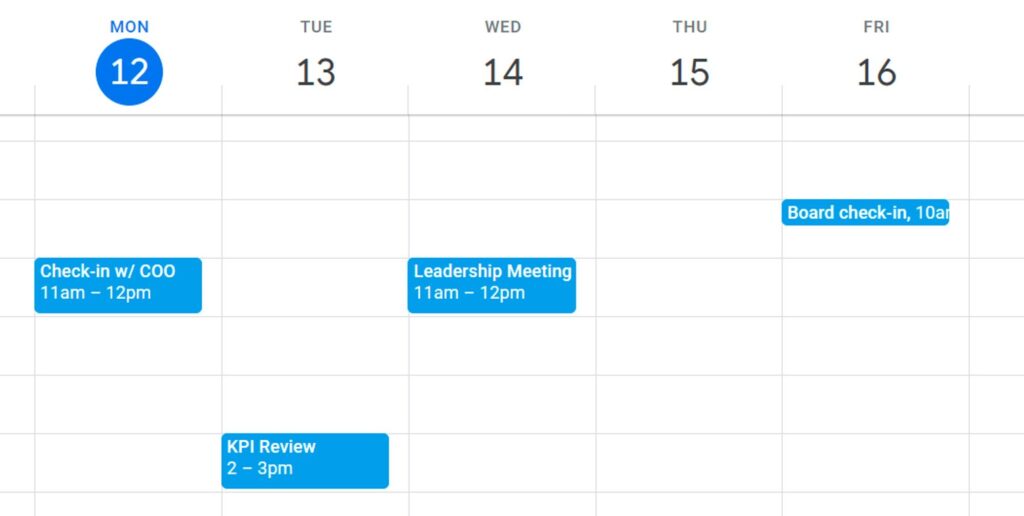November 21, 2024
CEO is a stressful job.
Nobody really teaches you how to do it.
I took a software marketplace company from $3m to $80m+ in six years as CEO.
Here’s my story (buckle in – it gets bumpy)
The Beginning
“I just don’t have enough time!!”.
It was 11pm and I was monitoring a critical launch for an AppSumo partner.
I was Stressed, Overwhelmed, Burnt out.
To add insult to injury, my team was too.
But since I was CEO, I thought I had to be involved in everything. I remember telling one of my mentors that I felt like my job as CEO was “Chief Emergency Officer”.
Constantly putting out fires.
He told me something that changed my life:
“If you’re always putting out fires, you’re the arsonist”

I was the bottleneck and I knew it
But I just kept pushing it off.
(I was too busy to stop being busy)
Emergency after emergency….
At the time, I had my hand in all the jobs.
I was…
- Jumping on sales calls
- Meeting with our bookkeeper
- Updating our P&L and budget
- Reviewing email copy
- Monitoring the launches at 10pm
- Answering customer support tickets
… In addition to managing the team.
If I took a screenshot of my calendar at the time, it would look something like this:

It felt like I was both everywhere and nowhere all at once.
I was being spread thin and pulled in million different directions.
Something had to change…

But one day something clicked.
So when the team told me they needed a new copywriter.
Instead of doing what I always did, writing a job description for a copywriter.
I wrote one for a Recruiter instead.
(I was ready to hire 1 to hire 10)
Amateur CEO:
- Team says they’re burn out
- Throws up a mid job post saying they’re hiring
- Runs a gut-feel interview process
- Takes whoever accepts the job offer within budget
- Get frustrated when they’re surrounded by C players
Experienced CEO:
- Anticipates team hiring needs based on Forecast
- Develops a multi-year recruitment strategy
- Creates a Copywriting worthy job posting
- Actively sources candidates (A Players aren’t job hunting)
- Screen applications and resumes
- Conduct initial phone/video screenings
- Administer assessments and tests
- Schedule in-person/virtual interviews
- Evaluate candidates and gather feedback
- Conduct reference checks
- Make a compelling job offer with 80%+ close rates
- Completes the onboarding process
- Surrounded by A and B players
Professional CEO:
- Hires a recruiter to do all of the above
- Only interviews the top 3 candidates
- Team of A Players
She came in and immediately put in a professional recruiting process:
- Wrote a funny job posting
- Actively sourced candidates (’A’ Players aren’t job hunting)
- Screened and Interviewed Candidates
- Created a Compelling Job Offer that was accepted
- Completed the onboarding
The Change
BTW that “Copywriter” (Ilona) ended up becoming our COO 6 years later.
She is easily one of the most critical hires to AppSumo’s growth story.
This was a huge epiphany moment for me:

Of COURSE a focused specialist would outperform me.
If this was true for recruiting, why wouldn’t this be true for other departments?
After that – everything changed.
I was no longer involved in everything.
In fact – my job was to be involved in almost nothing.
I asked my team to take full ownership of their departments.
I would no longer be their safety net.
Before, they knew they could always rely on me to jump in and help out.
Now, I wanted them to fully own it:
“Olman, I need you to build out a sales team”
“Ilona, I need you to send me a “Full Send” ready emails”
“Nick, I need the Affiliate Program to bring in 8 figs next year”
Over time, my schedule started to free up:
Hopping on 10 sales calls/week became a 30-min check-in with Olman.
Writing copy for 5 hours became reviewing email results with Illona.
Doing customer support daily became seeing rising NPS scores via my CEO Dashboard.
As an individual contributor, you have tangible results.
“I closed this deal” or “I wrote this copy”.
But as the CEO, your output is now the team’s output.
My Team
As my team took more ownership, my calendar got increasingly empty.
If I took a screenshot of my Calendar at $50m, it would have looked something like below.
To the point where I questioned, “What exactly do I do here anymore?”.

Before, when I went on vacation, I still lived in Slack and Email.
Now, when I went on vacation, no one was pinging me…
My phone was dry.
Instead of seeing it as a point of pride, I became insecure.
I even remember Noah Kagan asked me one time in a Board Meeting:
“You have a team and your calendar is empty… what exactly do you do here?”
This kept me up at night:
“Am I even needed anymore?”
The short answer: Yes, I was.
Most companies fall apart when the CEO steps away from the company to go “chill”.
What the CEO does now is create the frameworks so your leadership team can operate without you:
There are only 5 things a CEO can’t delegate:
- Vision (where you’re going)
- Culture (how you operate)
- Hiring Exec Team (who will build it)
- Allocation of Resources (how we spend our money)
- Cash (ensure survivability)
If you feel overwhelmed as CEO, you’re doing too much
Everything else (including managing of the team) can and should eventually be delegated.
For example, if you’re no longer involved in the hiring process…
How do you create the rubrics so your leaders can hire (as if you were in the room with them)?
At AppSumo, this was our hiring litmus test:
AppSumo Hiring Frameworks
Define the core values
- At AppSumo, ours were: hungry, humble, & weird.
Create hiring rubrics
- Does this person raise the average?
- Would I be afraid if they went to a competitor?
- Would I want to hang out with them if we were stuck on a 5-hour layover?
If someone doesn’t check those boxes, why are we moving forward with this hire?
The Process
One of the most dangerous quotes in business:
“Hire smart people and get out of their way”
If you dont create guardrails for your team to stay focused, it’s easy for them to get distracted
Listen to Will Ahmed (CEO of WHOOP) talk about scope creep:
What was my process for creating these frameworks?
- Identify your ideal outcome
- How do we learn from our mistakes?
- What has worked well for us in the past?
How We Create Frameworks
What is our ideal outcome?
Ex: For hiring, an A player who is fully onboarded and doing their job.
Historically, what has worked for us?
Ex: Internal referrals from our team who know our culture > putting out a job description on LinkedIn.
What mistakes have we made in the past?
Ex: Hiring based on title rather than need.
We need a really good email marketing manager -> We’re looking for someone to run our emails who is world-class at copy.
“But I can’t trust that my team will get the same results that I can!!”
Of course, they won’t.
They’re never going to get the results you need on Day 1.
CEO
Where most CEOs fail is in delegating the final draft rather than the rough draft.
Instead of saying, “Go write this piece of copy, it’s due on Friday at 5pm”
Say, “This email is going out on Friday…
Send me a rough draft by Monday so we can meet to review it”
Then, by the time it’s Friday, it’s 90% complete.
The best CEOs create checkpoints for their team.
Over time, the rough draft that started at 60% will be 80%, then 90%, and so on.
Soon enough, your team will be delivering work that’s BETTER than the work you could have ever done on your own.
In the beginning, you are the firefighter. But when you’re the CEO, your job is to Create the Fire Departments:
- Create guardrails
- Elevate the standards
- Check in with your team regularly

Your goal is to continuously build the systems in place in order to have an empty calendar
Week by week, quarter by quarter, you’ll create an unstoppable machine
Conclusion
Was this helpful?
Do you find yourself stressed and working too much?
I help 7-Figure Founders become $100m CEOs (by working less)
Bookmark this article.
Follow me on X / Twitter @aymanalabdul for more content like this!
THE END.

